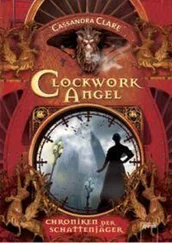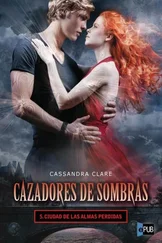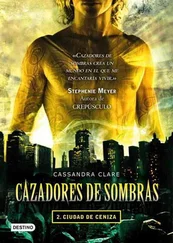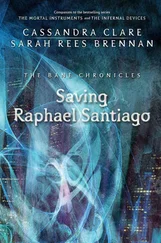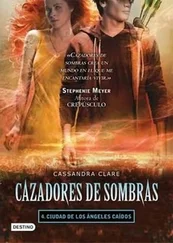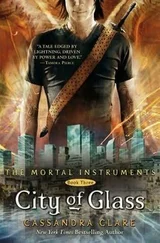She tried to make her voice as firm and strong as it could be, for herself as much as for the boy at the window. “Perhaps, Gabriel Lightwood, I have faith in you.”
Peace, peace! he is not dead, he doth not sleep,
He hath awaken’d from the dream of life;
’Tis we, who lost in stormy visions, keep
With phantoms an unprofitable strife,
And in mad trance, strike with our spirit’s knife
Invulnerable nothings. We decay
Like corpses in a charnel; fear and grief
Convulse us and consume us day by day,
And cold hopes swarm like worms within our living clay.
— Percy Bysshe Shelley, “Adonais: An Elegy on the Death of John Keats”
The courtyard of the Green Man Inn was a churned mess of mud by the time Will drew up his spent horse and slid down from Balios’s broad back. He was weary, stiff, and saddle-sore, and with the bad condition of the roads and the exhaustion of himself and his horse, he had made the last few hours in very bad time. It was already quite dark, and he was relieved to see a stable-boy hurrying toward him, boots splashed with mud to the knee and carrying a lantern that gave off a warm yellow glow.
“Oi, but it’s a wet evening, sir,” said the boy cheerfully as he grew nearer. He looked like an ordinary enough human boy, but there was something mischievous and a bit spritelike about him—faerie blood, sometimes, handed down over generations, could express itself in humans and even Shadowhunters with the curve of an eye or the bright shine of a pupil. Of course the boy had the Sight. The Green Man was a well-known Downworld way station. Will had been hoping to reach it by nightfall. He was tired of pretending in front of mundanes, tired of being glamoured, tired of hiding.
“Wet? You think?” Will muttered as water ran off his hair and into his eyelashes. He had his eyes on the front door of the inn, through which welcoming yellow light poured. Overhead almost all light had drained from the sky. Ponderous black clouds loomed overhead, heavy with the promise of more rain.
The boy took Balios by the bridle. “You’ve got one of them magic horses,” he exclaimed.
“Yes.” Will patted the horse’s lathered side. “He needs a rubdown, and special care.”
The boy nodded. “You a Shadowhunter, then? We don’t get many of them around these parts. One a little while ago, but ’e were old an’ disagreeable—”
“Listen,” Will asked, “are there rooms available?”
“Not sure if there are any private ones, sir.”
“Well, I’ll be wanting a private one, so there’d better be. And a stable for the horse for the night, and a bath and a meal. Run along and get the horse put away, and I’ll see what your landlord says.”
The landlord was utterly obliging and, unlike the boy, made no comments on the Marks on Will’s hands or at his throat, only asked the very usual sort of questions: “Do you want your meal in a private parlor or to take it in the common room, sir? And will you be wanting a bath before your supper, or after?”
Will, who felt encased in mud, opted for the bath first, though agreed to take dinner in the common room. He had brought a good amount of mundane money with him, but a private parlor for dining in was an unnecessary expense, especially when one did not care what one was eating. Food was fuel for the journey, and that was all.
Though the landlord had taken little notice of the fact that Will was Nephilim, there were others in the common area of the inn who did. As Will leaned against the counter, a group of young werewolves by the large fireplace, who had been indulging in cheap beer for most of the day, muttered among themselves. Will attempted not to notice them as he ordered hot water bottles for himself and a bran mash for his horse, like any high-handed young gentleman, but their sharp eyes on him were avid, taking in every detail from his dripping wet hair and muddy boots to the heavy coat that showed no sign of whether he wore the Nephilim’s customary weapons belt beneath.
“Easy, boys,” said the tallest of the group. He sat well back toward the fire, casting his face in heavy shadow, though the fire outlined his long fingers as he took out a fine majolica cigar box and tapped thoughtfully at the lock. “I know him.”
“You know him?” one of the younger wolves asked in disbelief. “That Nephilim? A friend of yours, Scott?”
“Oh, not a friend. Not exactly.” Woolsey Scott lit the tip of his cigar with a match and regarded the boy across the room over the small flame, a smile playing about his mouth. “But it’s very interesting that he’s here. Very interesting indeed.”
* * *
“Tessa!” The voice echoed in her ear, a ragged shout. She sat bolt upright on the riverbank, her body trembling.
“Will?” She scrambled to her feet and looked around. The moon had passed behind a cloud. The sky above was like dark gray marble, shot through with veins of black. The river ran before her, dark gray in the poor light, and glancing around, she saw only gnarled trees, the steep cliff down which she had fallen, a broad swatch of countryside stretching away in the other direction—fields and stone fences, the occasionally distant dotting of a farmhouse or habitation. She could see nothing like a city or a town, not even a cluster of lights that might have indicated a tiny hamlet.
“Will,” she whispered again, drawing her arms about herself. She was sure it had been his voice she had heard calling her name. No one else’s voice sounded like his. But it was ridiculous. He was not here. He could not be. Perhaps, like Jane Eyre, who had heard Rochester’s voice calling for her on the moors, she was half-dreaming.
At least it was a dream that had driven her out of her unconsciousness. The wind was like a knife of cold, cutting through her clothes—she wore only a thin dress, meant for indoors, and no coat or hat—and into her skin. Her skirts were still wet with river water, her dress and stocking ripped and stained with blood. The angel had saved her life, it seemed, but it had not protected her from injury.
She touched it now, hoping for guidance, but it was as still and mute as ever. As she took her hand away from her throat, though, she heard Will’s voice in her head: Sometimes, when I have to do something I don’t want to do, I pretend I’m a character from a book. It’s easier to know what they would do .
A character from a book, Tessa thought, a good, sensible one, would follow the stream. A character from a book would know that human habitations and towns are often built by water, and would seek out help, rather than blundering into the woods. Resolutely she wrapped her arms about herself and began to trudge downstream.
* * *
By the time Will—well-bathed, shaved, and wearing a clean shirt and collar—returned to the common room for supper, the room was half-full of people.
Well, not exactly people. As he was shown to a table, he passed tables where trolls sat hunched together over pints of beer, looking like gnarled old men save for the tusks that protruded from their lower jaws. A thin warlock with a mop of brown hair and a third eye in the center of his forehead was sawing into a veal cutlet. A group sat huddled at a table by the fire—werewolves, Will sensed, from their packlike demeanor. The room smelled of damp and embers and cooking, and Will’s stomach rumbled; he hadn’t realized how hungry he was.
Will studied a map of Wales as he drank his wine (sour, vinegary) and ate the food he was brought (a tough cut of venison with potatoes) and did his best to try to ignore the stares of the other customers. He supposed the stable-boy had been right; they didn’t get many Nephilim here. He felt as if his Marks were glowing like brands. When the plates were cleared away, he took out paper and composed a letter:
Читать дальше

